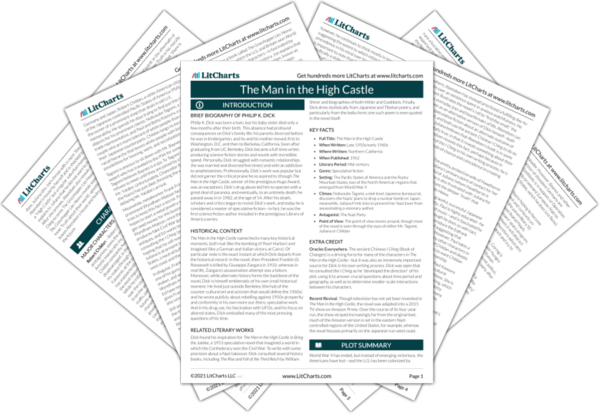Whereas Tagomi and Baynes both articulated their moral confusion, here, the book places the reader in the middle of Juliana’s chaos. Faced with two difficult moral choices (commit murder or let Abendsen be assassinated), Juliana’s thinking goes off the rails. Even when she does murder Joe, then, it is not the result of a conscious decision but rather a part of her descent into incoherence.
